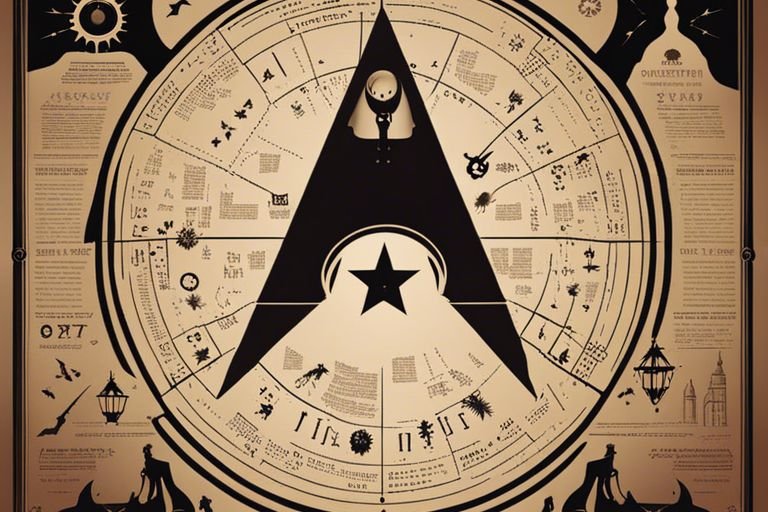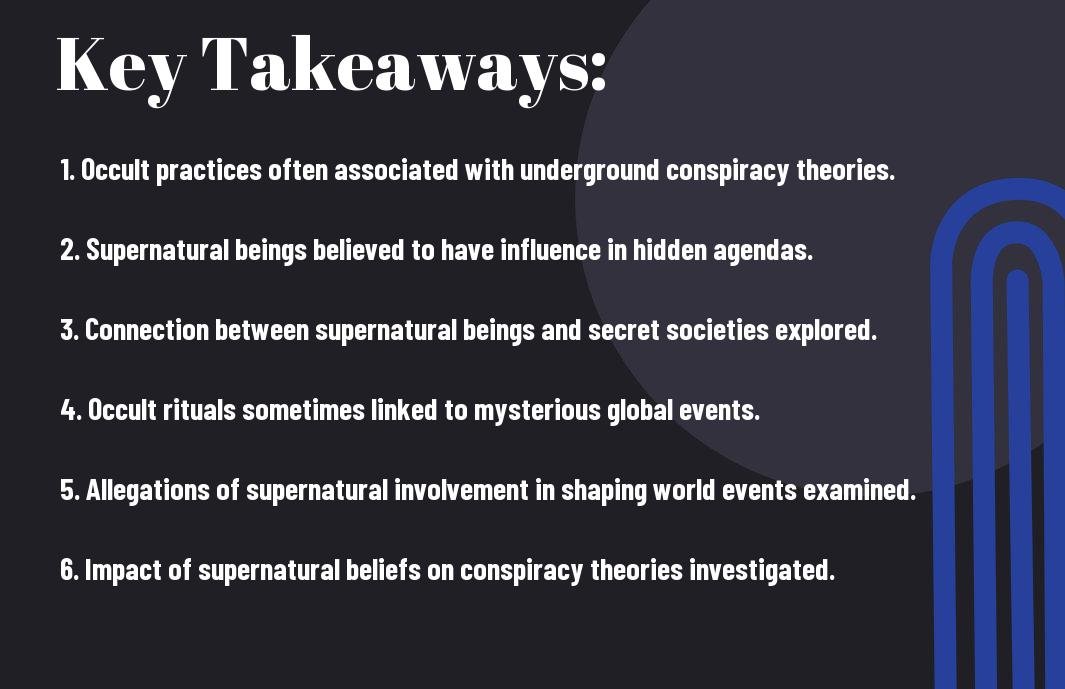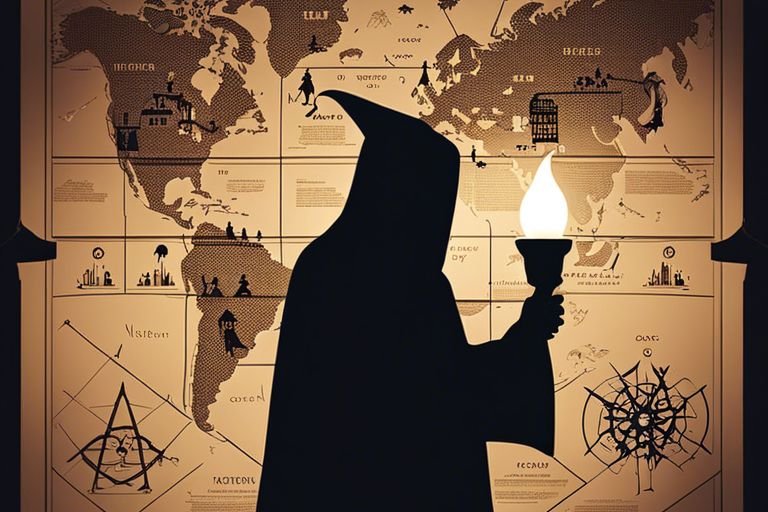
Conspiracy. Are supernatural beings real, or just a figment of our imagination? Dive into the mysterious world of the occult as we explore the intriguing connection between supernatural beings and conspiracy theories. From ancient mythologies to modern-day cults, we unravel the enigma behind these elusive entities and their purported influence on hidden agendas and covert operations. Join us on this captivating journey that explores the intersection of the supernatural and conspiracy theories, shedding light on the fascinating realm of the unknown. Curious to learn more about the historical significance of occultism in shaping ideologies? Check out Occultism in Nazism for a deeper understanding.

Conspiracy theories and the occult have a long history of intriguing interplay. From the mystical practices of ancient civilizations to the secretive societies of the Middle Ages, there has always been a strong connection between supernatural beliefs and hidden knowledge. The allure of hidden truths and esoteric wisdom has captivated the minds of many, leading to the formation of secret societies that explore into the mystical realms of the unknown.
The modern world is no stranger to the merging of conspiracy theories and occult beliefs. From claims of government cover-ups involving extraterrestrial encounters to suspicions of hidden messages in popular culture, there is a constant undercurrent of supernatural elements in many modern conspiracies. The line between fact and fiction blurs as individuals seek to uncover hidden truths and expose the mysteries that lurk in the shadows.
Theories may range from the idea that secret societies control world events through ritualistic practices to the belief that supernatural beings are manipulating the course of human history. These connections between the occult and conspiracy theories continue to fascinate and captivate those who are drawn to the mysteries of the unknown.
If you’ve been paying attention to trends in entertainment, you’ll notice a surge in the portrayal of supernatural beings in movies, TV shows, and books. From vampires and werewolves to witches and demons, the occult has captivated audiences worldwide. This fascination with the unknown and mysterious has sparked a wave of interest in the paranormal, leading to a plethora of content exploring these supernatural realms.
Entities that transcend our understanding of the natural world often spark curiosity and fear in equal measure. Belief in supernatural entities can be traced back to our innate desire to explain the unexplainable. Whether it’s seeking comfort in the idea of guardian angels or finding meaning in the presence of malevolent spirits, our beliefs in these beings can offer solace or ignite terror.
Contemporary culture’s obsession with the supernatural stems from a deep-seated need to make sense of the world around us. As technology advances and science attempts to demystify the unknown, the allure of supernatural beings persists. Whether through folklore, urban legends, or mainstream media, the human fascination with the occult continues to evolve and shape our perceptions of reality.
Now, when it comes to delving into the occult and supernatural beings, skepticism plays a crucial role. It’s imperative to approach these subjects with a critical eye, employing scientific inquiry to separate fact from fiction. By questioning claims and demanding empirical evidence, we can sift through the myths and uncover the truth behind the mysteries that surround us.
Validating encounters and unexplained phenomena is a key aspect of exploring the occult. While skepticism is important, there are cases where claims can be verified through multiple witnesses, physical evidence, and expert analysis. These validated encounters offer a glimpse into the unknown, opening doors to new realms of understanding and challenging our perceptions of reality.
Scientific investigations into verified encounters and unexplained phenomena are crucial in unraveling the mysteries of the occult. Through rigorous experimentation, data collection, and analysis, researchers can shed light on the supernatural events that defy conventional explanation. By approaching these phenomena with a scientific mindset, we can bridge the gap between the known and the unknown, expanding our knowledge of the mysterious forces at play in the world.

One of the most intriguing aspects of delving into the occult and exploring supernatural beings is the way it impacts societal and cultural beliefs. Fear and paranoia often go hand in hand with the unknown, leading people to question their surroundings and the intentions of others. The power of belief should not be underestimated, as it can shape the way individuals view the world around them and interpret events that occur.
Supernatural entities and conspiracy theories have long captured the imagination of the public, and media plays a vital role in shaping these perceptions. Through movies, TV shows, and books, the media has the power to either perpetuate stereotypes and fears or challenge them by portraying a more nuanced view of supernatural beings. It’s important for consumers to be critical of the information they are presented with and consider the source before accepting it as truth.
Another important aspect to consider is the influence of social media and the internet on shaping perceptions of the supernatural. With the rise of online platforms, information spreads rapidly and can sometimes blur the lines between fact and fiction. It’s crucial for individuals to verify the credibility of sources and approach supernatural topics with a discerning eye to separate truth from sensationalism.